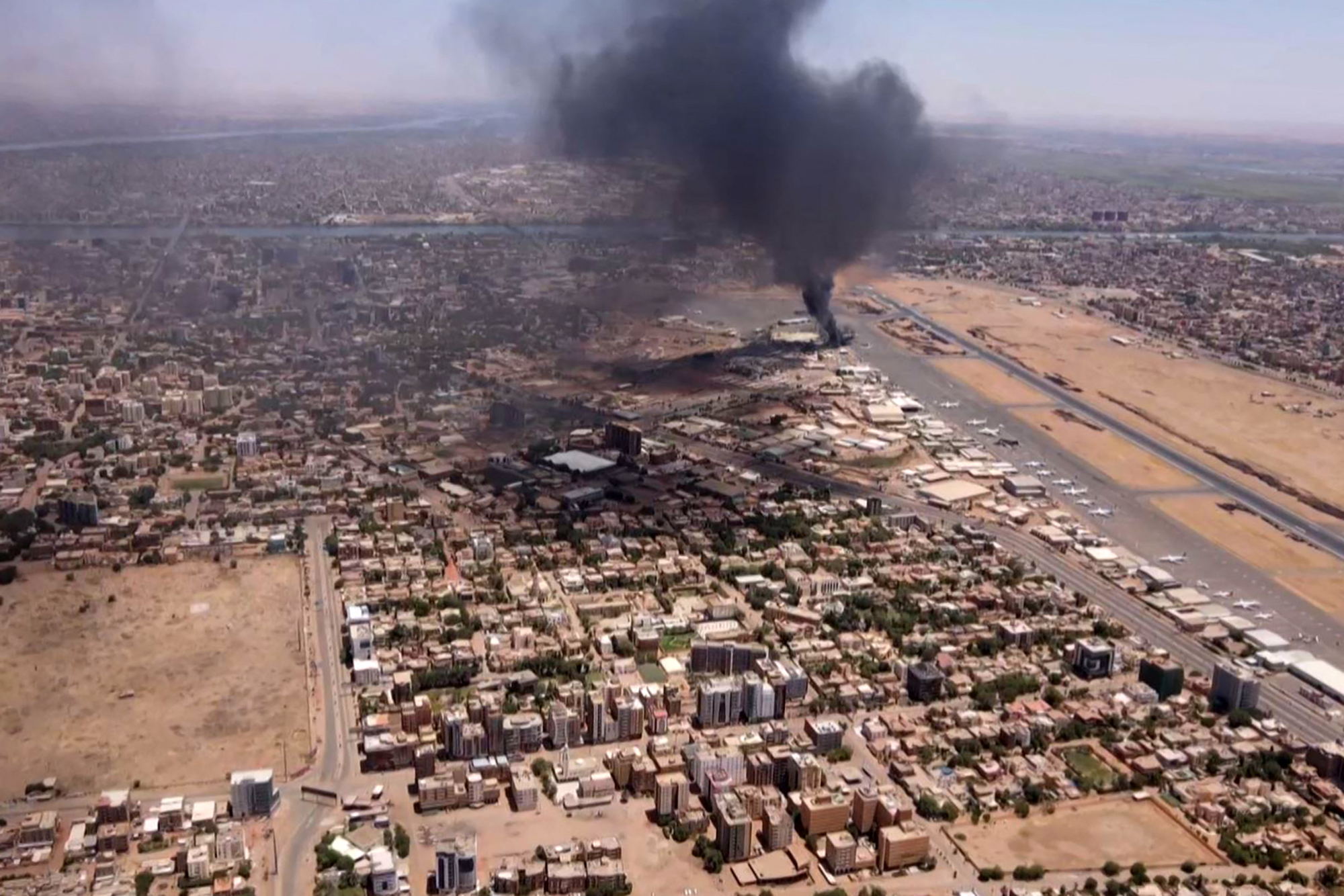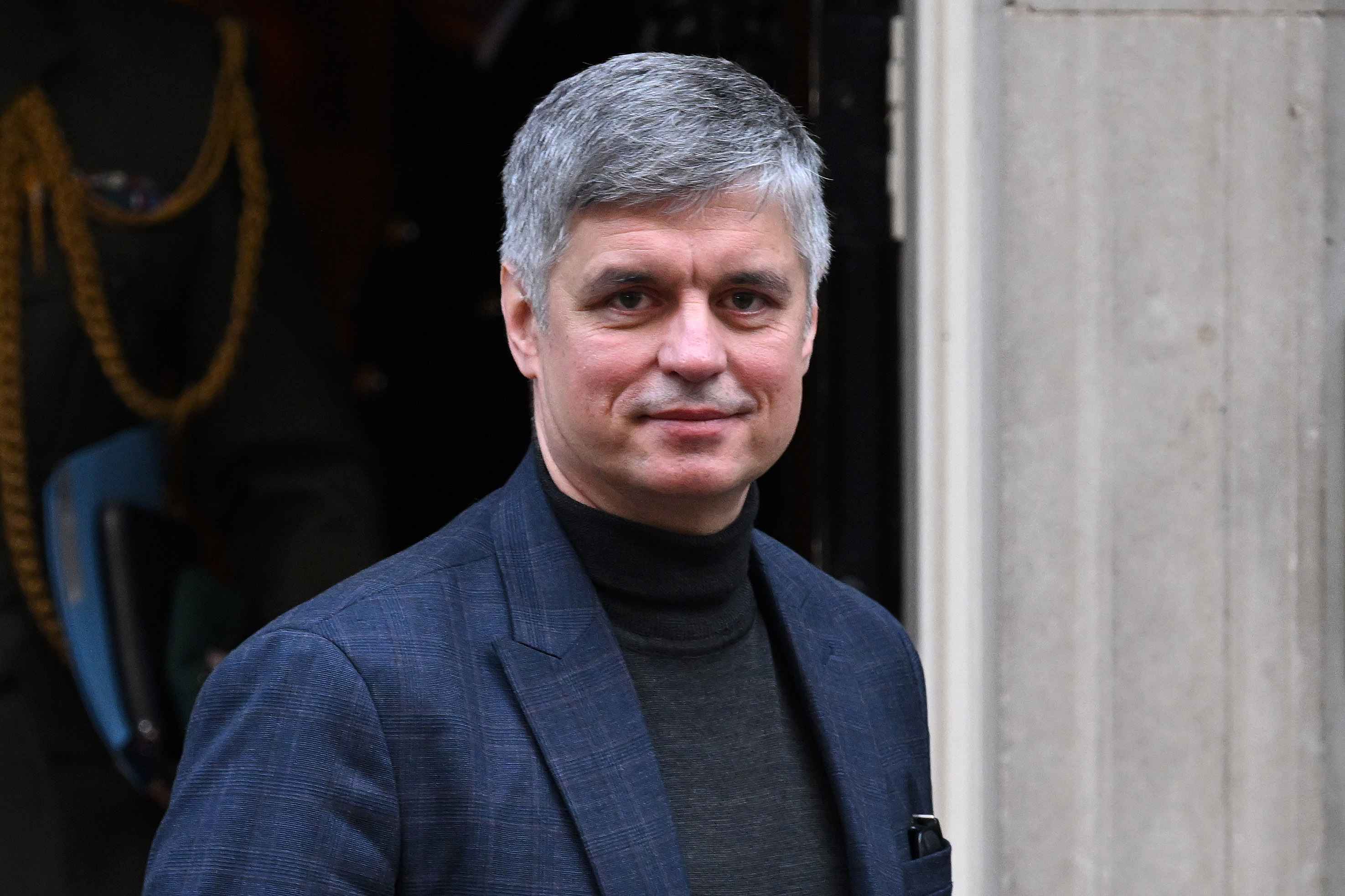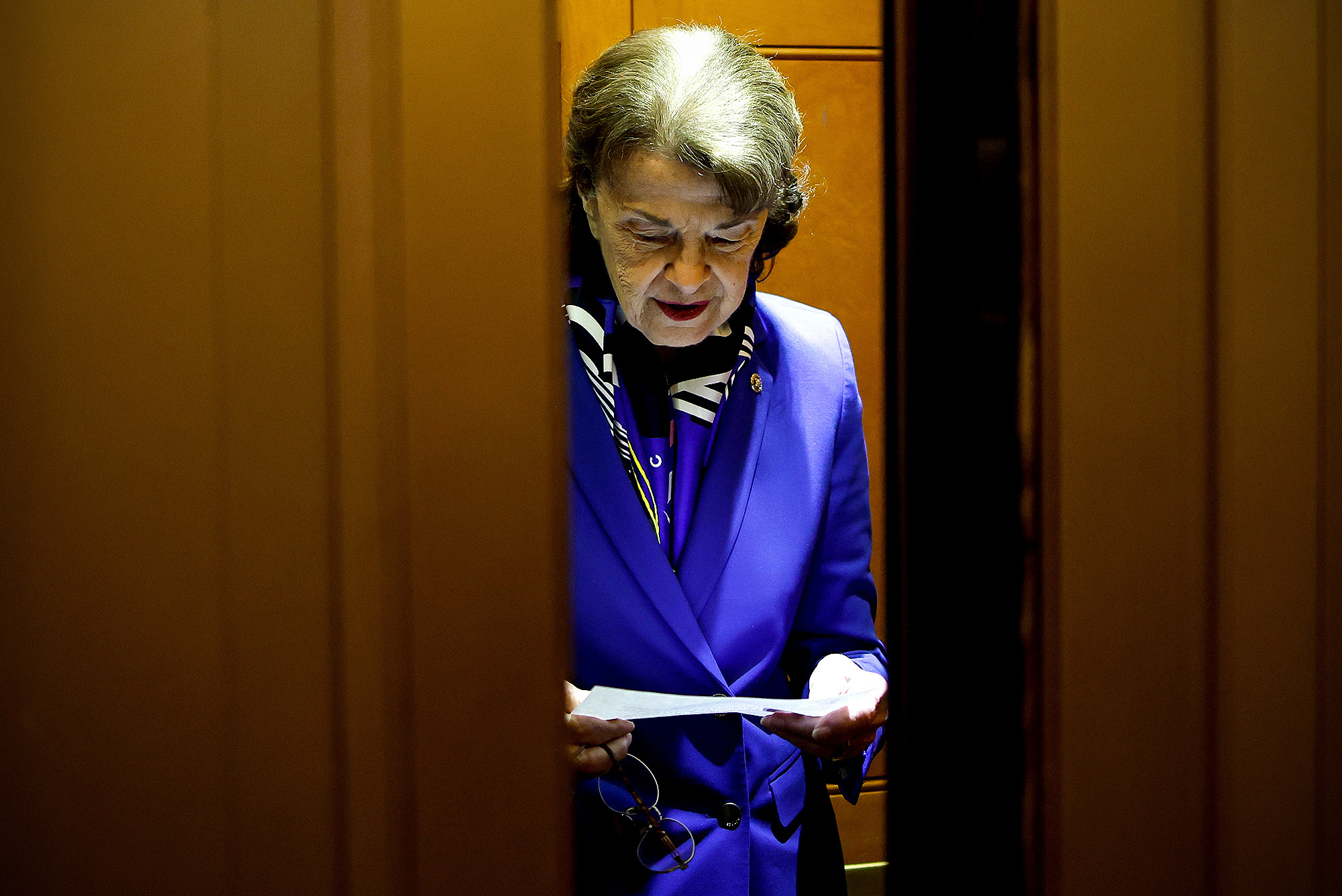How Ukraine Can Retake Crimea, Per Ex-U.S. General Ben Hodges
"It began with Crimea, it will end with Crimea," declared Ukrainian President Volodymyr Zelensky in 2022 when discussing his country's ongoing resistance to Russia's latest war of conquest.
Reclaiming the peninsula—occupied by Moscow's forces assisted by local collaborators since 2014—is perhaps Kyiv's most ambitious war goal. Jutting out into the Black Sea and bordering one side of the Sea of Azov, Crimea is a vital piece of the regional strategic puzzle and key in safeguarding its lucrative commercial shipping routes.
But Ukraine will have to fight hard for such a prize. Russian forces are reportedly preparing the peninsula and its approaches from southern Ukraine for a counteroffensive. Crimea's unique geographical challenges pose many dangers for attackers, and its political importance to President Vladimir Putin means Russian troops there—and sympathetic locals—can be expected to put up a resolute defense.

In an interview with Newsweek, retired Lieutenant General Ben Hodges—who formerly served as the commanding general of the U.S. Army Europe—laid out three phases through which Kyiv's troops may be able to seize Crimea, beginning with Ukraine's long awaited spring counteroffensive.
"There's a variety of ways that Ukrainians are thinking about this," Hodges explained. "Obviously, they know the geography, they know the history, the weather, they know what the Russians have there. I imagine they have a near perfect intelligence about what's happening inside Crimea. And I certainly hope that we're helping—the U.S. and the UK."
A Valuable Prize
Ukraine has been ravaged by 14 months of war. Its economy shrunk by one third last year, and Russia's invasion has eaten away at the workforce while choking the vital agricultural and industrial seaborne exports that have traditionally been central to its prosperity.
Kyiv will not be able to ensure security of commercial shipping in the Black Sea unless it liberates the peninsula, Hodges said.
"If the Russians continue to control Crimea, either because they defeated Ukrainians or because of some peace settlement, Ukraine will never be able to rebuild its economy because Crimea blocks access in and out of the Sea of Azov," he said.
Even the large ports of Odesa and Mykolaiv—both of which are firmly under Ukrainian control—will still be threatened by Crimea, Hodges said.
"If you can step back and don't focus on Crimea, but look at the Black Sea, it's painfully obvious how Russia would be able to block, whenever it wanted to, ships coming in and out of any Ukrainian port of any type," he said.
"That's an important part of this, not just because we want Ukraine to have an economy but also for the European Union and for Europe," Hodges said. "If Ukraine is not able to rebuild its economy, then you've got millions of Ukrainian refugees that are still staying all over Europe…This is a real problem for all of Europe if Ukraine cannot rebuild its economy."
Russian-held Crimea, Hodges said, is "a dagger pointed at the belly of Ukraine."
Isolate
What can Kyiv do to ameliorate the Russian threat from Crimea?
"First you isolate the peninsula," Hodges said. "When you look at the map, it starts to look more and more like a trap, or maybe a cul-de-sac for the Russians. And you can isolate it by first cutting the land bridge."
The land bridge—running from the southwestern Russian border west of Rostov-on-Don, through occupied Donetsk, Mariupol, Berdyansk, Melitopol and to the Dnieper River—is Moscow's biggest achievement from more than a year at war.
The corridor allows Russia to better supply the Crimean Peninsula, which until February 2022 was reliant on the Kerch Strait Bridge augmented by shipping.
A Ukrainian drive south from Zaporizhzhia and east from Kherson would endanger this vital corridor.
"I don't know this, but I think that's one of the main objectives of this Ukrainian offensive that's coming up," Hodges said. "Break that land bridge, and once you've done that then phase two begins."
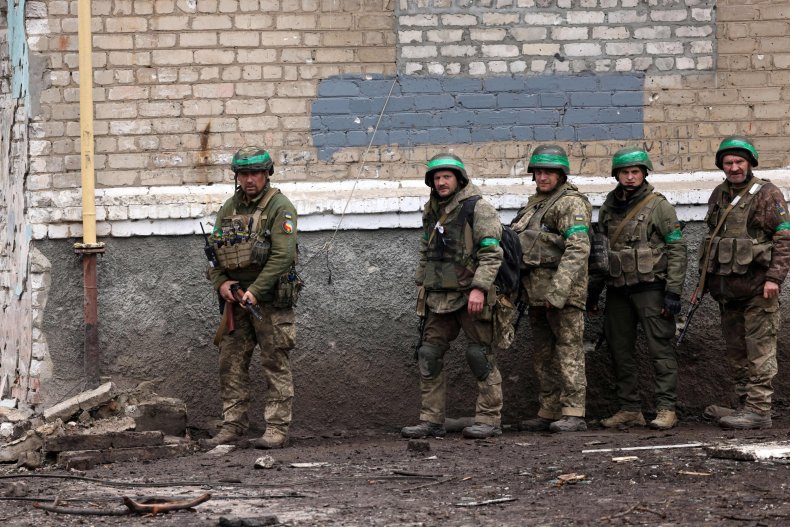
Bombard
If Ukrainian forces can reach Crimea's doorstep, much of the peninsula's most sensitive military and infrastructure targets will be in range.
Ukrainian troops have proved adept at using long-range Western munitions—as well as indigenous technology—to target Russian command posts, troop concentrations, and supply hubs. Crimea offers a wealth of targets, including the Sevastopol naval base and the Saky air base, both of which have already been attacked.
"You start hitting targets to make the peninsula untenable for Russian forces," Hodges said of a second phase of attack. "You hit Sevastopol and the Black Sea Fleet has to leave, they can't sit there while precision weapons are raining down on ships, or harbor facilities, fuel, ammo, etc. Same thing with the airbase in Saky."
General Christopher Cavoli—the current commander of U.S. forces in Europe—has said that "precision can beat mass" if given sufficient time.
Hodges said this approach might be suitable in Crimea, where Moscow has deployed significant strength in fear of Ukrainian operations.
"With an army that depends on mass infantry, it has to have headquarters and artillery," he said. "And so, with precision, you start knocking out headquarters, you start knocking out artillery ammunition storage, and you knock out transportation hubs."
"I think that's what phase two would be, going after those kinds of targets to make it untenable for Russia to stay and fight effectively in Crimea."

More Western weapons can give Ukraine the edge it needs to do this, Hodges said. Kyiv already has U.S.-made High Mobility Artillery Rocket Systems armed with Guided Multiple Launch Rocket Systems munitions, which have a 56-mile range. But despite repeated requests from Ukraine, Washington has refused to provide the longest-range HIMARS munitions; the MGM-140 Army Tactical Missile System that has a range of 190 miles.
"If the Ukrainians had the ATACMS, for example, the Black Sea Fleet would have already had to leave Sevastopol, they would have been hitting that place already," Hodges said. "Same thing with their airbase at Saky and a couple of these other targets."
ATACMS, Gray Eagle drones, and other long-range systems "would make such a big difference," Hodges said.
"I think this goes back to how the administration, the German, British and French governments have not fully committed to Ukraine winning," he added. "They are they are concerned, I think unnecessarily, that somehow this could lead to nuclear escalation. Or maybe it could lead to the collapse of the Russian Federation and the Chinese don't want that. Or maybe the Europeans don't. But the bottom line is, they are not willing to say we want Ukraine to win."
Liberate
Fighting in the peninsula—in places swampy and in others mountainous—would be difficult. Ukrainian troops would also have to contend with hundreds of thousands of Russian-born residents, or at least those who have not already fled.
In 2014, the Ukrainian-born population in Crimea was more pro-Russian than the rest of the country, as evidenced by election and referenda results. When Russian troops seized the peninsula, thousands of Ukrainian soldiers and officials are believed to have defected.
With almost a decade of integration with Russia and ceaseless ideological conditioning, advancing Ukrainian troops may have to handle hostile locals.
"You do have to go in there and clear it and occupy it," Hodges said. "How that happens, I'm not exactly sure yet. It will not be an easy task, that's for sure. But I think the Ukrainians will have thought through how they do that."
Kyiv will have to make a decision about what to do with the Kerch Strait Bridge, which was targeted by the Ukrainians last year.
"They will not drop that bridge," Hodges suggested. "I think they'll leave it up so that people can leave, so they literally have a bridge to get out of there if they see what's happening, and they don't want to remain under Ukrainian control."
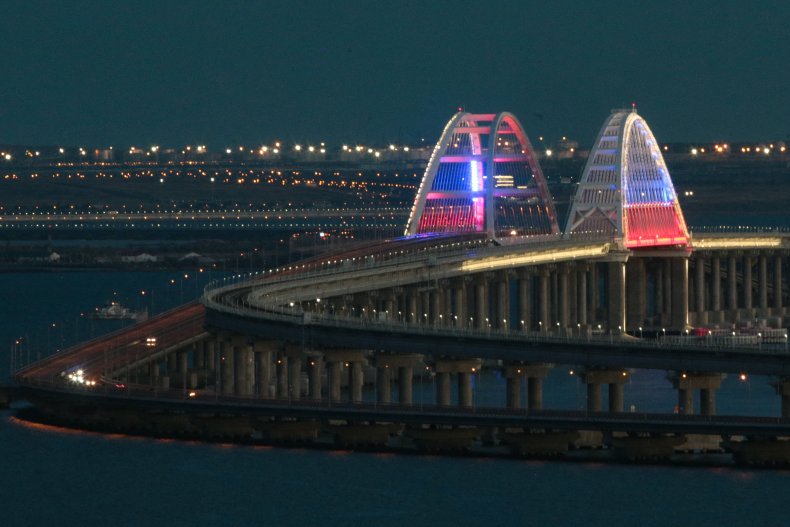
"I think that at some point the Ukrainians will drop it, but I think in the near term, I think they'll probably leave it up, unless the Russians are using it in a meaningful way after the land bridge has been cut. If they're pouring in a lot more capabilities over the Kerch Bridge, then they may decide to drop it."
Hodges suggested that the loss of Crimea might hasten the end of the wider war, which has been raging at varying intensities for more than nine years.
"I think once Crimea has been liberated, there will be a lot less enthusiasm in the Kremlin for hanging on to these really poor destroyed parts of eastern Ukraine," he said. "What really matters to them about the Donbas was having the land bridge to Crimea."
"I don't think they honestly care a whole lot about these little villages out in Donetsk and Luhansk, even though they've lost thousands of soldiers there."
Newsweek has contacted the Russian Ministry of Defense by email to request comment.
